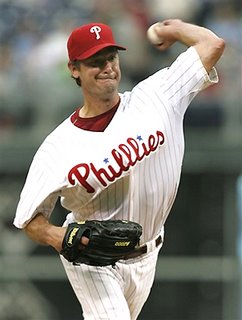
Monday night's midnight deadline came and went with the Phillies failing to file any paperwork.
The team declined to offer arbitration to any of their free agents - Pat Burrell,
Jamie Moyer, Tom Gordon and Rudy Seanez - meaning the club will not receive compensation (draft choices) if/when the player signs elsewhere.
But that's not the only issue when it comes to offering (or not offering) your own free agent arbitration.
Here are a few other things to note:
-If the Phillies had offered, say,
Pat Burrell arbitration, he could have accepted, meaning he'd be back with the team for another year. BUT, his contract would be decided by a third-party, arbitrator, and that wouldn't happen until mid-February.

-If the above scenario played out, the Phils might actually end up paying Burrell more than what he could command on the open market. Burrell made $14 million last year and would surely get a pay increase from an arbitrator. If the Phils haven't completely closed the door on bringing back Burrell, they'd much rather go the route of, say, two-years, $22 million in their own negotiating than an arbitrator's call of one-year at, say, $16 million.
-Just because the club didn't offer the player arbitration doesn't mean they won't be back. The Phils have been negotiating with Moyer and will likely continue to do so in order to come to an agreement.
The Phils weren't the only team to decline to offer arbitration to all of their free agents. The free-spending Yankees went the same route, and announced their intentions before midnight.
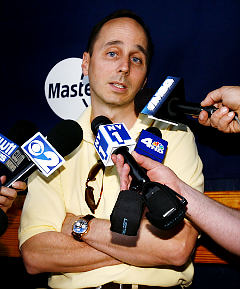
Yanks general manager
Brian Cashman explains the decision-making process; his comments make some sense.

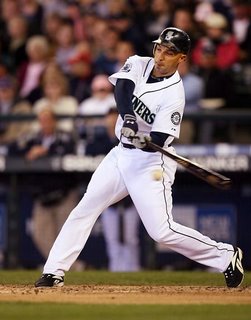
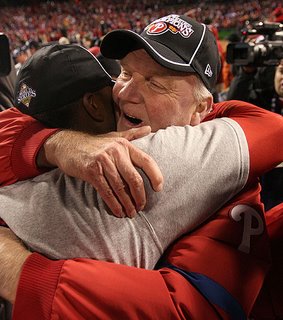
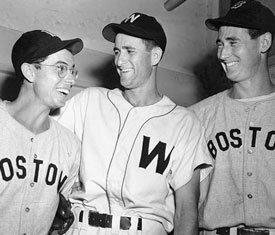


 Yanks general manager Brian Cashman explains the decision-making process; his comments make some sense.
Yanks general manager Brian Cashman explains the decision-making process; his comments make some sense.